A transparent metric ruler is placed on the stage of a microscope and observed under low power. The diameter of the field of vision was found to be 2 millimeters. This is the number of micrometers in the diameter.
What is 2000 micrometers?
This is the formula and the units for density.
What is mass divided by volume and g/cm3?
A new scientific idea that is tested using scientific method is known as this.
What is a hypothesis?
Scientists use diagrams, tables, and graphs mainly to do this to data.
What is organize and to create a visualization?
In order to be accepted a scientific theory must be this.
What is widely tested and supported by extensive data?
What is the length of section A? |
What is 4.5 cm or 45 mm.
If a rock has a mass of 21 and a volume of 3 cm3 this is its density.
What is 7 g/cm3?
A student formulated a hypothesis that cotton will grow larger bolls (pods) if magnesium is added to the soil. The student has two experimental fields of cotton, one with magnesium and one without. This is the data that should be collected to support this hypothesis.
A) height of the cotton plants in both fields
B) diameter of the cotton bolls in both fields
C) length of the growing season in both fields
D) color of the cotton bolls in both fields
What is 'B'?
The graph below provides information about the reproductive rates of four species of bacteria, A, B, C, and D, at different temperatures.
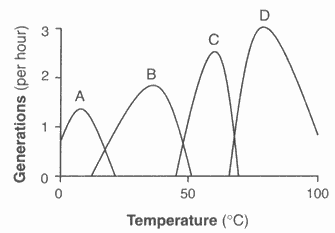
This statement is a valid conclusion based on the information in the graph.
a) Changes in temperature cause bacteria to adapt to form new species.
b) Increasing temperatures speed up bacteria. reproduction.
c) Bacteria can survive only at temperatures between C and
C.
d) Individual species reproduce within a specific range of temperatures.
What is 'D'?
('a' is wrong b/c there is nothing about adaptation in the graph.)
('b' is wrong b/c increasing temperature speeds up reproduction for SOME bacteria and kills other bacteria.)
('c' is wrong b/c the graph doesn't show below or above that range.)
A student conducted an original, well-designed experiment, carefully following proper scientific procedure. In order for the conclusions to become generally accepted, this must be done.
What is the experiment must be repeated and replicated?
The diagram below shows a wasp positioned next to a centimeter ruler.
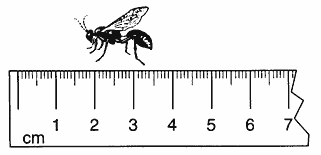
This is the approximate length of a wing of this wasp.
What is 1.5 cm or 14 mm.
This is the volume of liquid shown in the graduated cylinder at the right.
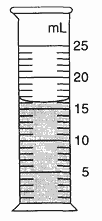
What is 16 ml?
This sentence represents a hypothesis.
a) Environmental conditions affect the pollination of plants.
b) Boil 100 milliliters of water, let it cool, and then add 10 seeds to the water.
c) Is water depth in a lake related to available light in the water?
d) A lamp, two beakers, and elodea plants are selected for the investigation.
What is 'A'?
The graph below represents the growth in length and mass of a fetus up to week 32. The length is measured in millimeters (mm) and the mass in grams (g).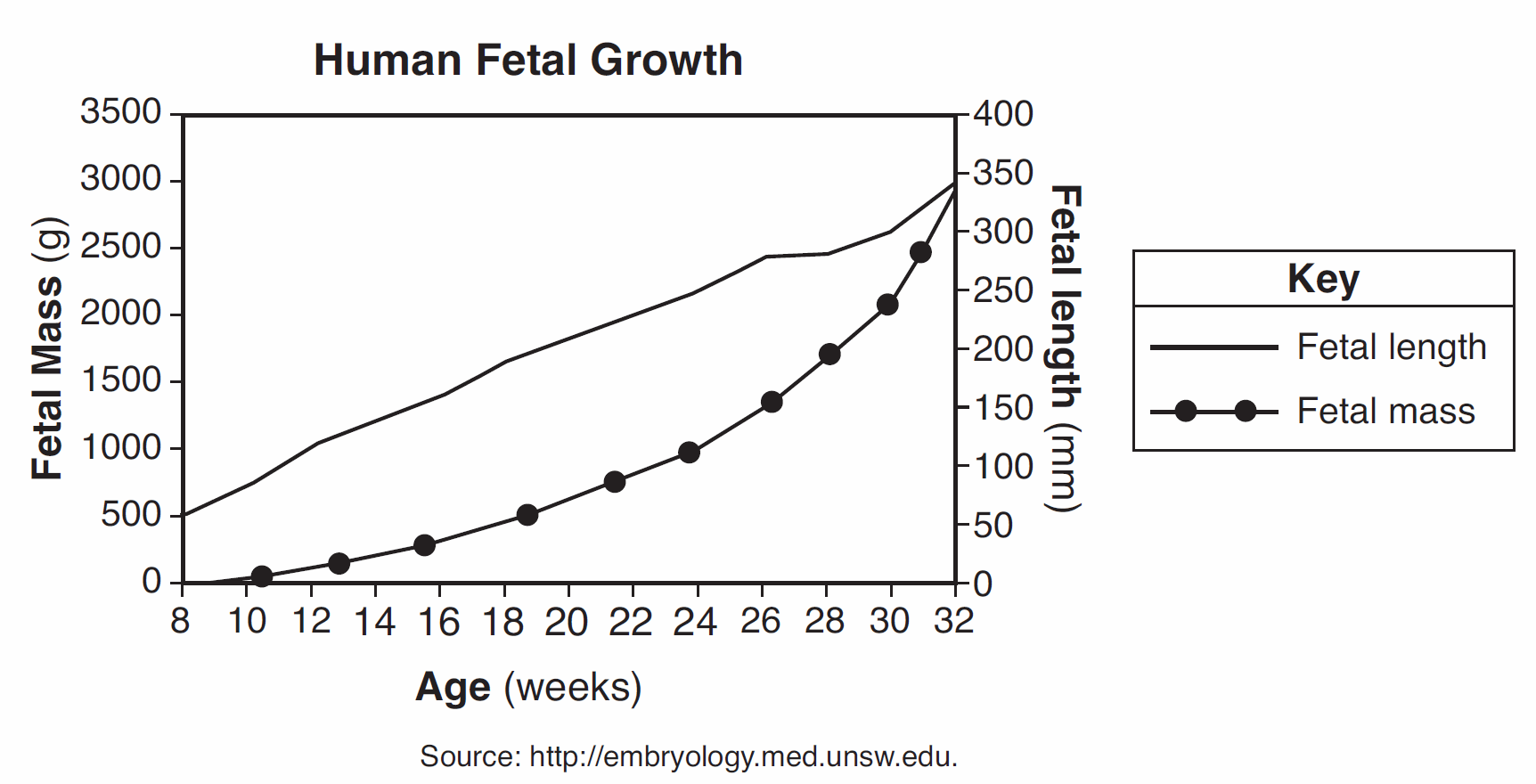
This statement best describes human fetal growth between weeks 26 and 32.
a) There is a faster rate of increase in mass than in length.
b) The rate of increase in mass levels off, while the increase in length constantly increases.
c) The fetal mass increases by 750 g and the fetal length increases by about 100 mm.
d) There are slight decreases in both length and mass.
What is 'A'?
The current knowledge concerning cells is the result of the investigations and observations of many scientists. The work of these scientists forms a well-accepted body of knowledge about cells. This body of knowledge is an example of this.
What is a theory? (Specifically Cell Theory)
The diagram below represents the measurement of a biological specimen.
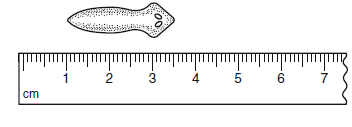
The approximate length of the specimen in millimeters is this.
What is 25 mm?
A student needs 20 milliliters of water for an experiment. This is the amount of water that the must add to the graduated cylinder.
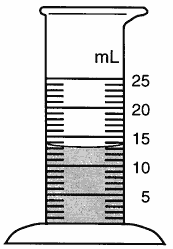
What is 7 ml?
To test the effect of hormones on plant growth, six potted plant seedlings of the same species were measured and then sprayed with auxin (a growth hormone). After four weeks of growth under ideal conditions, the plants were measured again. To set up a proper control for this experiment, the investigator should do this.
What is 'grow six plants under normal conditions and spray them with only water'?
The graph below shows the relative concentrations of certain hormones in the blood during the human female reproductive cycle.
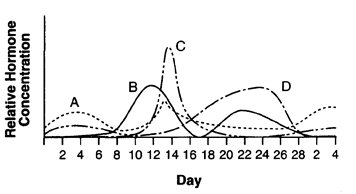
On what day is hormone 'C' highest?
What is day 14?
This is why scientists consider any hypothesis valuable.
What is, even if a hypothesis is disproved, new and interesting scientific inquiry could come out of it?
|
What is 90mm?
In the diagram below, letter A represents the starting volume of liquid in a graduated cylinder. Letter B represents the volume after 8 milliliters of this liquid was removed. This information indicates that the scale on this graduated cylinder is in milliliter increments of this.

What is 2 ml?
Based on experimental results, a biologist in a laboratory reports a new discovery. If the experimental results are valid, biologists in other laboratories should be able to do this.
What is reproduce the results?
|
What is, increase the number of seeds?
This must be done for the results of an experiment to be considered valid.
The results must be reproducible many times in many different experiments.


